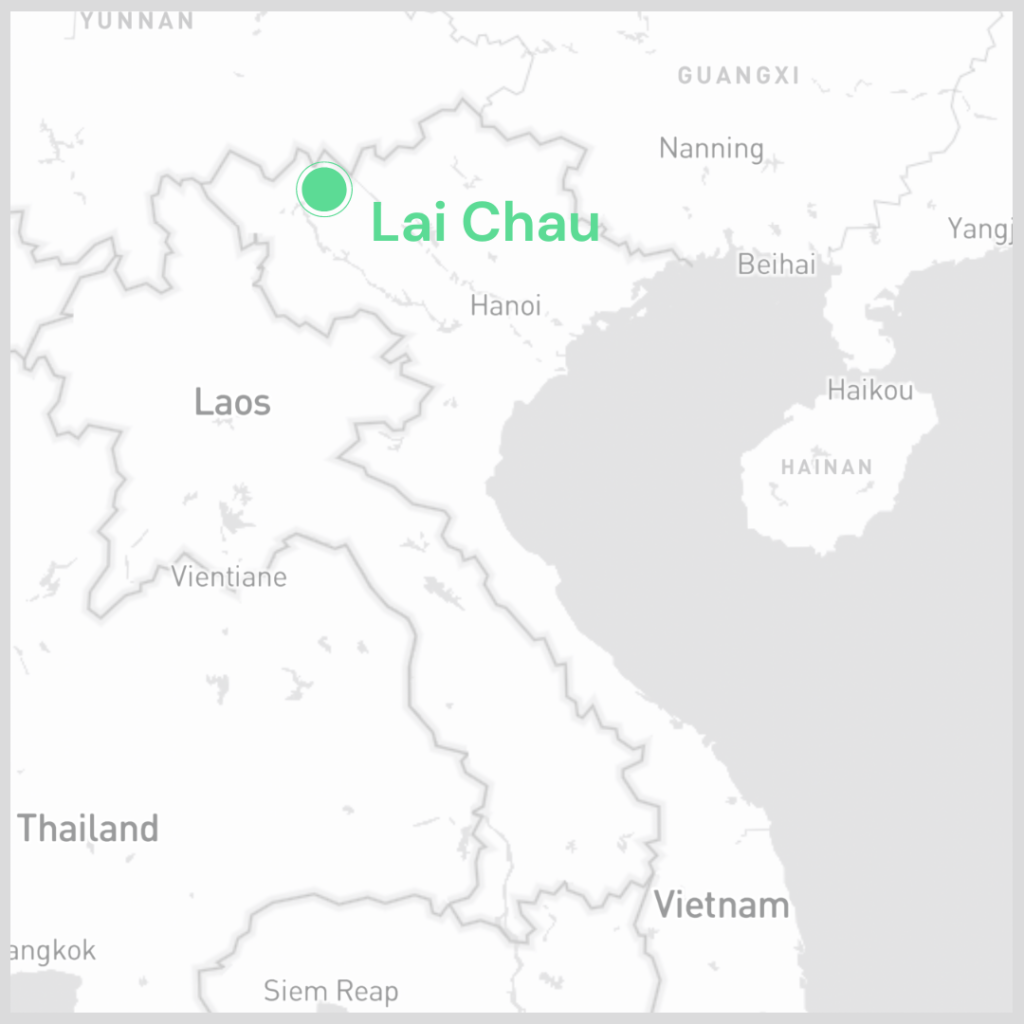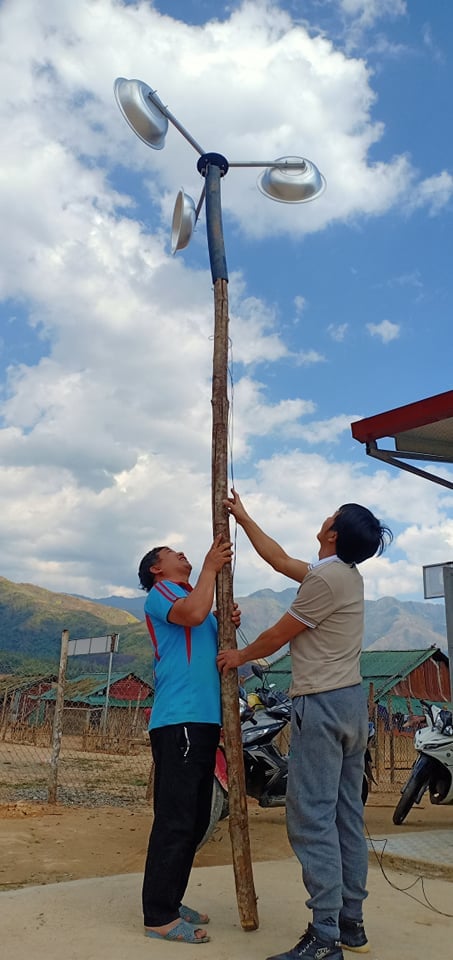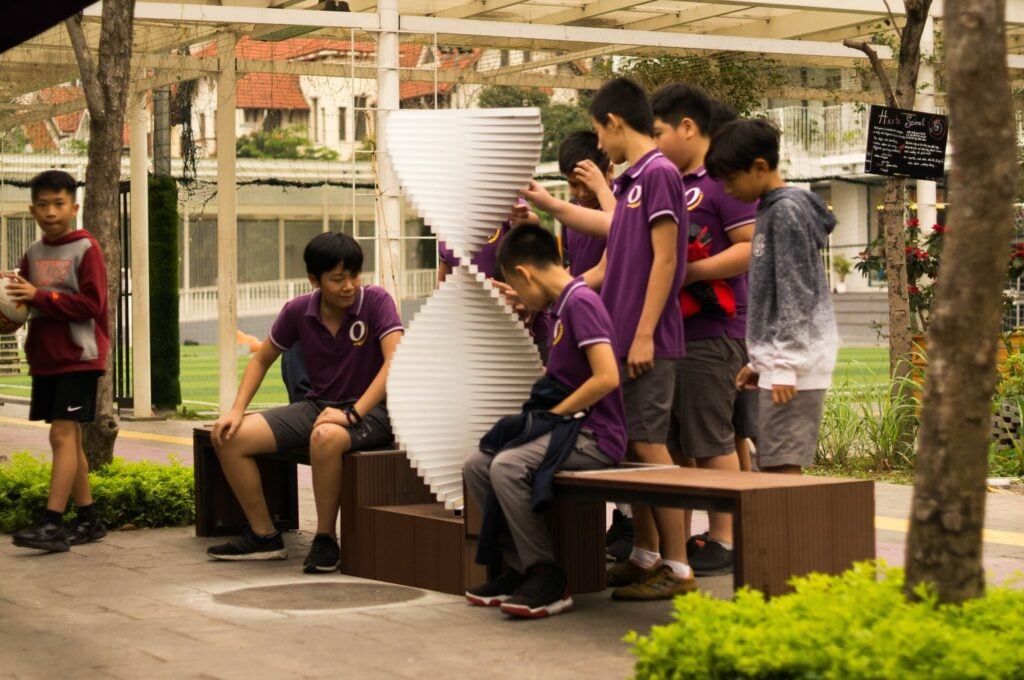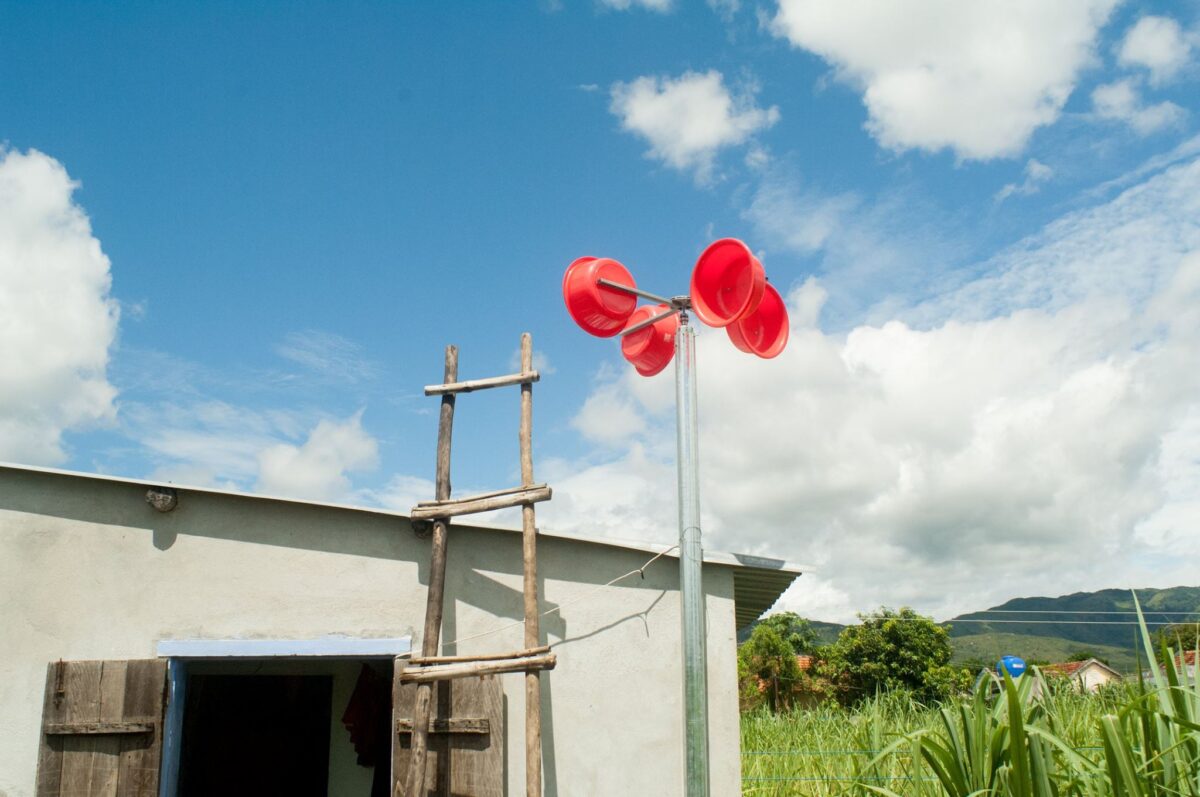LAI CHAU, VIETNAM – In November 2019, teachers and students at the Pa U elementary boarding school in Muong Te district in Vietnam’s Lai Chau province had electricity for the first time.
The power came from a rudimentary micro wind turbine system, which was sold and delivered to the school by a local startup named 1516 and assembled by the teachers.
The setup was simple: aluminum tubs affixed to a sturdy wooden rod, linked to a sun box that contains a charge controller, a solar battery and an inverter to generate electricity.

“The children were so excited to see those turbines in action,” recalled teacher Bui Thi Minh Khuyen. Despite a limited output that can only sustain the school’s energy needs until 10pm, the new power supply has made a vast difference.

Previously, the school only had light bulbs powered by cheap solar panels imported from China. Fans, radios, TVs, phones and laptops were luxuries the school could not power.
These pupils and teachers belong to the remaining 1% of Vietnamese households that still lack access to electricity, which translates to at least 154,000 families, according to statistics from the Ministry of Industry and Trade in 2021.
Most of them live in far-flung corners of the country, where the roads and infrastructure are under-developed.
Off-grid renewable energy systems such as 1516’s wind turbines are trying to power these communities, but questions remain over their sustainability.
The 1516 company started their first pilot project in 2015, working with 10 families in a fishing village near the Red River, only a few kilometers from the center of Hanoi.
Poverty and a nomadic lifestyle isolated them from the national grid, so villagers either lived in the dark or purchased power at exorbitant prices through middlemen.
After this experiment’s success, 1516 secured funding from the UK Business Association to supply micro wind turbines for another 50 households in a floating hamlet along the Red River’s banks.
Their affordable, easy-to-assemble products gained the attention of sponsors and since then, 1516 has been able to install more than 1,000 wind turbines for marginalized communities in 15 provinces.
Installing off-grid energy systems in mountainous terrain is a daunting task. Before coming up with a design that allows customers to assemble the devices themselves, the 1516 team had to travel to remote locations to do the setup.
“The trails are narrow, and the cliffs are steep,” architect and 1516 founder Le Vu Cuong told Mekong Eye. “I have made these journeys countless times, yet I am still afraid a single misstep could send me tumbling at any time. Plus, visibility is extremely limited near mountain peaks,” Cuong added.
Robyn Klingler-Vidra, an Associate Professor on entrepreneurship and sustainability at King’s College London and author of Inclusive Innovation, considers 1516 “an excellent example of inclusive innovation,” which she defines as the act of skillfully managing resources and bringing forth novel solutions that deviate from the market-driven economy.
“Mr Le’s background is in architecture – he is a graduate from the Hanoi Architectural University – and so he has used his skills and immersion in local communities to help solve local problems in environmentally friendly ways,” she said.

A gravel road to sustainability
However, when Mekong Eye reporters visited the floating hamlet in Hanoi in June 2023, most of the wind turbines had stopped working. Also, the wind turbines in Pa U could not weather a storm in 2020.
“From an engineering point of view this is wartime tech: a very inefficient short-term partial solution, barely better than nothing at all,” Minh Ha-Duong, one of the founders of the Vietnam Initiative for Energy Transition Social Enterprise (VIETSE), told Mekong Eye via email in June 2023.
Cuong, the 1516 founder, is acutely aware of his product’s limitations.
“To produce a wind turbine with capacity comparable to a one-by-0.6-meter solar panel, we would need a towering structure reaching 20 meters, with a 2.5-meter blade. The size would be enormous, giving rise to many safety, installation and maintenance problems,” Cuong explained.
Cuong is also aware of the technical and financial limitations, as well as the scalability and replicability of their innovation.
Despite their efforts to expand to Southeast Asia and Africa, 1516 has not been able to export their products to any marginalized communities in those regions, primarily due to cost barriers and variations in climatic conditions.
They also cannot expand to regions that are well connected to the national grid in Vietnam, as their products remain inefficient and commercially unviable compared with the state’s power supply.

A temporary solution
But despite a degree of skepticism, off-grid solutions like 1516’s remain the only viable ones. A report from UNICEF in 2022 estimated that about 16,000 schools in Vietnam have no access to electricity.
The Vietnamese government has tried to mobilize international funding for rural electrification projects, but has not secured enough to implement any projects.
Vo Thi Xuan Quyen, a consultant and program officer at Live and Learn, one of the key sponsors of 1516, argued that decentralized renewable energy systems put low-income communities on “a fundamental right on par with the other 99%” in terms of access to electricity.
“If children can study at night and listen to the radio, their mental health improves. Electricity can change a child’s life,” Quyen told Mekong Eye.
“The national grid can never reach 100% of the population,” VIETSE expert Minh Ha-Duong told Mekong Eye. According to Duong, such expectations on the government are unrealistic. Mini grids are another solution, but such systems are expensive and often built by the private sector.
Duong estimates that Vietnam needs at least 5-10 more years for mini grids to be implemented. “[Until then], thousands of villages, hundreds of thousands of households will have to rely on organizations like 1516,” he said.
“Future science, technology and innovation (STI) policy should encourage entrepreneurs and innovators like Mr Le to apply their expertise and work with local communities to meet challenges as they arise,” Klingler-Vidra stressed.
For now, electrification for far-flung communities rests on the shoulders of entrepreneurs and civil society.
“Eight years ago, I went on business trips to remote places without electricity, where I had to charge my phone and laptop at well-off households with generators. Even that was not reliable due to constant battery and engine failure,” teacher Khuyen recalled.
Her eyes are fixed on one goal: to bring electricity to all 14 schools in Muong Te district in Lai Chau.
This story was produced in collaboration with Tia Sang Magazine and supported by Internews’ Earth Journalism Network.





